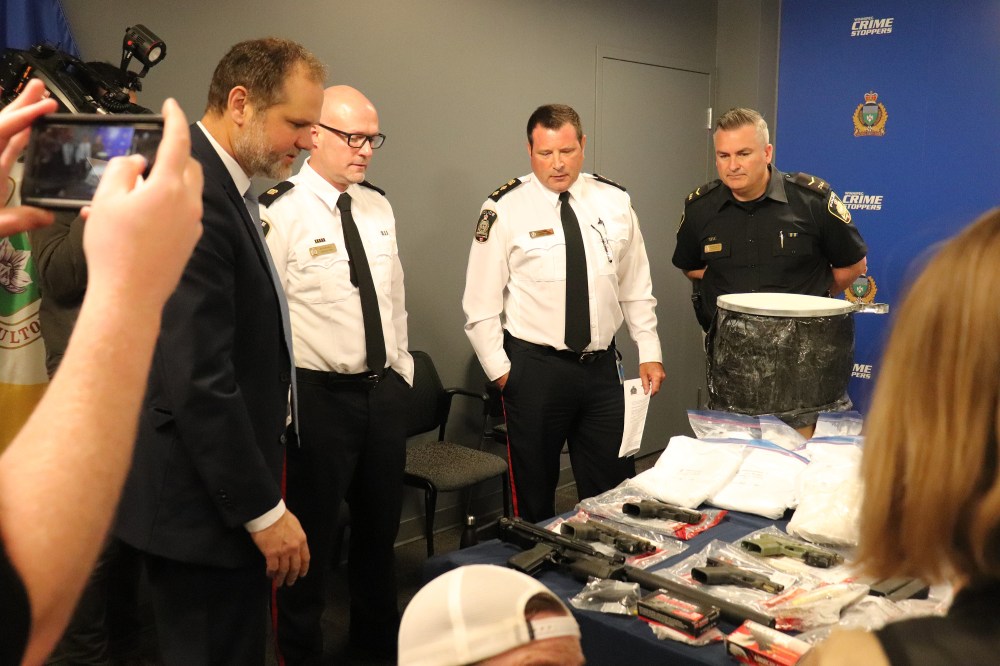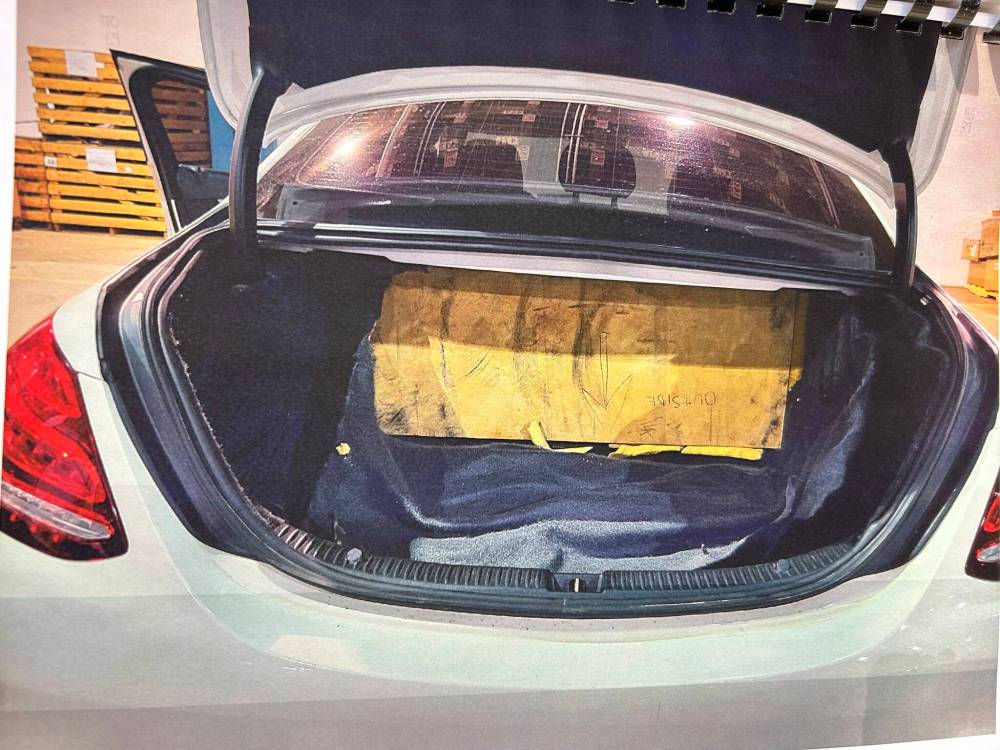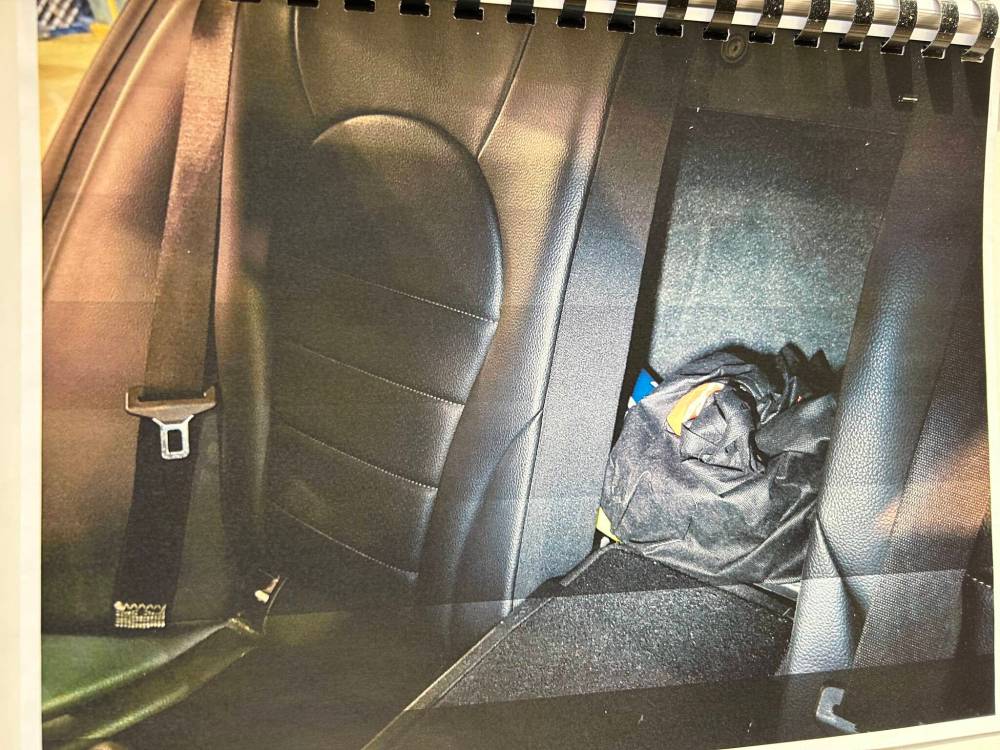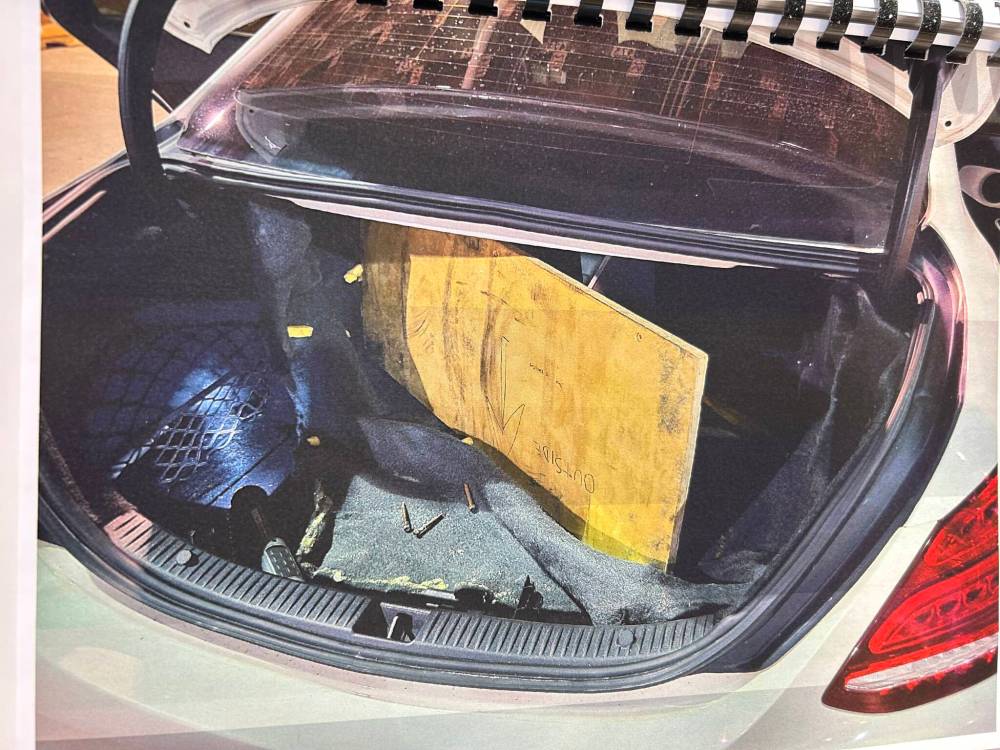A trafficking network described as “one of the most multifaceted organized crime operations seen by the Winnipeg police” utilized encrypted messages, secret compartments and couriers to transport millions of dollars worth of cocaine into Manitoba, court documents show.
New details about the Winnipeg Police Service takedown of a national drug network, dubbed Project Soft Landing, were revealed last week as the Director of Criminal Property Forfeiture fights to retain control over cash seized by investigators.
According to the documents, city police spent roughly one year covertly gathering evidence on the network, using a “variety of investigative techniques, including the use of physical and electronic devices, production orders and various warrants.”

“Communications intercepted during the project indicated that counter police detection methods were employed,” the documents say. “Police directly observed quantities of cocaine with a street value in the millions of dollars being transported, handled and/or stored by the network.”
The operation spanned from May 2023 to March 2024, during which time police secretly captured video and audio recordings and intercepted about 20,000 communications — many of which were sent using encrypted messaging applications like WhatsApp and Signal, the documents say.
Police used phone data to track suspects’ movements throughout Winnipeg and across provincial borders, while financial records were used to flag transactions believed to be related to the proceeds of crime, they say.
Investigators secretly entered suspects’ homes and vehicles on 35 occasions to gather evidence, including sampling substances and containers to confirm the presence of drugs, locating hidden compartments and documenting bundles of cash, cocaine and drug packaging materials, the documents say.
The final “covert entry” was completed in January — just under two months before officers executed a blitz of 22 search warrants in Manitoba, British Columbia and Ontario.

The WPS hosted a news conference in May announcing it worked with other police agencies to arrest and charge 14 people with offences related to organized crime, drug trafficking, possession of firearms, possession of proceeds of crimes and laundering proceeds of crime as part of the project.
Nine of those suspects were from Winnipeg, where the alleged leader of the network, Tyrone Reid, has family connections, the documents say.
Reid, who is from Toronto, is described by police as the “directing mind” behind the drug ring. He is accused of facilitating the purchase of bulk cocaine through Ontario and organizing its transport to Winnipeg.
According to police, Winnipeg man Elvis Oyewole, 33, and 22-year-old Valentin Kokeny (who is from Vancouver but was living in Winnipeg) brought cocaine into the Manitoba capital via railways, buslines and inside modified cars.
A written log of surveillance operations details nine occasions between June 15, 2023, and Dec. 18, 2023, when investigators watched the accused travel between provinces to exchange backpacks, duffel bags and suitcases believed to be stuffed with drugs.

In several instances, police later used covert entries to confirm the bags contained cocaine, the documents say.
Oyewole’s girlfriend, Paige Preteau, 27, was also charged in connection to the network. Her involvement in the drug ring was unclear until January when police secretly stole a 2012 Dodge Journey registered in her name. The vehicle, which Oyewole used to transport drugs, contained 16 kilograms of cocaine, the documents say.
“Upon the covert seizure, Preteau became the direct contact with Reid … discussing the movement of drugs and money from within her residence and the search for the Dodge Journey and the drugs within,” they say.
According to the documents, investigators did not execute any covert entries into Preteau and Oyewole’s Winnipeg home because the couple has two small children.
Once in the city, the drugs were distributed by a team of street-level dealers.

Reid’s half-brother and co-accused, Darcy Warmington, acted as a “conduit to which the Winnipeg-based group sources their cocaine through Reid,” the documents say. Police watched the 24-year-old meet with other members of the network and “complete tasks at the behest of Reid.”
Darcy Warmington’s relative, 34-year-old Kevon Warmington, acted as a street dealer. With the help of fellow Winnipegger Tovary Sharpe, 34, he ran a “lucrative drug line, selling at the gram and multi-ounce level,” police said.
Winnipeg residents Fiona Lewis, 62, Cornelius Hibbert, 55, Adrian Cheston, 28, and Kerry-Ann Thompson, 32, were also arrested and charged as part of Soft Landing. They are not mentioned in the documents filed by the Director of Criminal Property Forfeiture and their involvement in the network is unclear.
Altogether, the operation netted $1.7 million in cash, 30 kilograms of cocaine (estimated street value $3 million), four handguns, one sub-machine gun, ammunition and $4 million in other assorted goods. Thirteen vehicles were seized, including three that had custom-made concealment compartments.
The drugs and weapons are to be destroyed, while the jewelry and vehicles will be auctioned off. The seized cash and auction proceeds will go to the provincial government and be distributed among various portfolios, police said previously.

The Director of Criminal Property Forfeiture is asking the court to allow WPS to remain in possession of more than $230,000 in cash seized during a warrant executed in Ontario. If granted, the money would stay in the control of justice officials, regardless of the outcome of the criminal proceedings against the named defendant.
tyler.searle@freepress.mb.ca

Tyler Searle
Reporter
Tyler Searle is a multimedia producer who writes for the Free Press‘s city desk. A graduate of Red River College Polytechnic’s creative communications program, he wrote for the Stonewall Teulon Tribune, Selkirk Record and Express Weekly News before joining the paper in 2022. Read more about Tyler.
Every piece of reporting Tyler produces is reviewed by an editing team before it is posted online or published in print — part of the Free Press‘s tradition, since 1872, of producing reliable independent journalism. Read more about Free Press’s history and mandate, and learn how our newsroom operates.
Our newsroom depends on a growing audience of readers to power our journalism. If you are not a paid reader, please consider becoming a subscriber.
Our newsroom depends on its audience of readers to power our journalism. Thank you for your support.